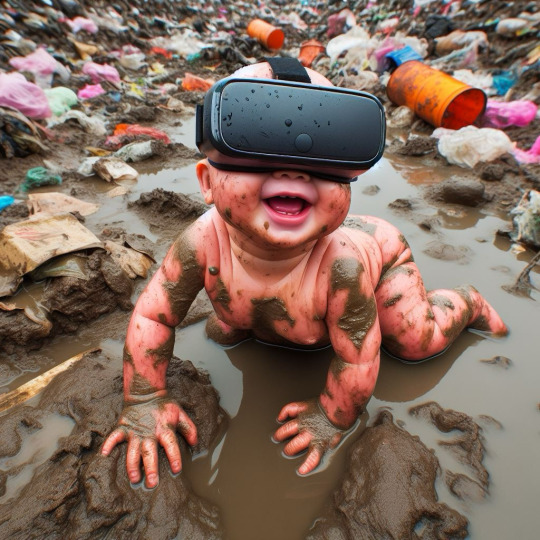Text
1980
Among those born after 1980, happiness falls with each year of age. Among those born before 1965, life evaluations rise with age.
0 notes
Text
You have to have the talent for the art–the music, the acting, the writing, the art–but you also have to have the talent for being in the right place at the right time with the right people with the right approach. I had to become a certain physical person and I had to place myself in certain places in front of, beneath, and around the right people. It’s an art to be noticed; to be necessary; to be needed and desired. Develop it, if you can. If you can’t, then I don’t think any amount of talent will be of any use to you. Talent has to move. Talent has to walk up to people and ask to sit down and talk a bit. Most talent stays at home, and it remains a gift, but it doesn’t get out enough. Someone has to see it in the right context. The context is entirely your job. - Marlon Brando / Interview with James Grissom
0 notes
Text
Startups and the Sustainable Recode
The long-held idea that successful tech startups will inevitably create positive societal change is looking more and more like legacy code in dire need of a refactor. That trickle-down theory of impact has hit a scalability ceiling.
We're in an era of staggering innovation and entrepreneurial wealth. And yet, critical systems like education, health, environmental sustainability, economic mobility and democratic governance seem problematic as ever. It's as if we've been industriously building the future's hyper-loop transit without agreeing where it needs to go.
Economic success and cool new technologies are key enablers, but clearly not enough on their own to substantively move the needle on society's core challenges. In some cases, unchecked growth has disrupted foundational infrastructure in destabilizing ways. We need to recouple entrepreneurial energy with systemic solutions to existential risks.
This is the next logical step in keeping with the progressive arc of hacker principles.
Step #1: Rebel against corporate bloat and democratize startup hustle.
Step #2: Become maniacally user-focused in your design philosophy.
Step #3: Level up again with societal progress as the new first principle and user.
The future belongs to startups optimizing humanity's quality of life across all domains – the ones aligning every microeconomic decision with catalyzing positive civic and ecological impacts at scale.
We need founders hellbent on radically improving factors like climate stability, public health, educational access, community resilience, governing responsiveness – the UN Sustainable Development Goals.
Instead of just hockey-sticking user growth or an acquisition exit, the moonshot is sparking massively positive societal phase changes.
We'd rigorously measure those impacts the way today's startups measure activation and retention. Except our dashboards would track quantitative progress across all 17 SDGs – from ending poverty and achieving food security to securing clean water, affordable energy, sustainable cities, and climate action.
Our incentive structures and status games reorient around catalyzing verified real-world impacts across the balanced scorecard of human and environmental flourishing metrics.
Early-stage investors would be incentivized to fund the most promising vectors of civic and ecological progress.
This isn't just some philanthropic PR effort bolted on. It's an entirely new existential imperative and path to entrepreneurial success and legacy. The equity-compensated wealth creation remains, we'd simply be realigning those incentives with rapidly prototyping, measuring, and scaling regenerative societal solutions via tight build-measure-learn feedback loops.
Developing massively impactful "SDG-startups" would become the new prestige job for society's best and brightest – the heroic work of this era's problem-solvers, design thinkers, and startup storytellers.
Early bets on the right societal Phase Transitions would create VCs as famous as today's celebrity unicorn wranglers. Mayors and policy makers would fight to provide startup advantages in their locales.
This refocusing puts us back in sync with how human civilizations radically progressed in the past – by having their top entrepreneurial talents and creative resources intently focused on critical resilience breakthroughs for the greater good of society.
Now it's time for our modern entrepreneurial vanguards to wake up, look around, and rewrite the core code propelling humanity forward.
0 notes
Quote
As I wrote about in an earlier essay, until recently human existence was dominated by solving problems in the physical world — most pressingly, the problems of obtaining food, shelter, and clothing. Nowadays, in our postindustrial service economy, the business of society is increasingly disconnected from physical problem-solving; instead, our preoccupations are ourselves and other people. I believe that this progress has had a profound and unfortunate side-effect: our mental lives are no longer disciplined by regularly bumping up against the hard, nonnegotiable demands of physical reality. Instead, our main reality is the murky, dreamy world of our and others’ thoughts and feelings, where everything is negotiable and what is popular or self-serving regularly trumps what is true. Losing our anchor in the physical world, I fear, has allowed us to drift off into all manner of morbid delusions and pointless status contests. Growing mental health problems among adolescents — the age cohort that is probably most thoroughly insulated from the hard surfaces and sharp edges of the physical world, and most thoroughly immersed in the preoccupations of identity and status — are one clear sign that we are adrift. Beyond that, there is the inconvenient fact that physical reality hasn’t gone anywhere: our dream world of identity and status rests on an immense foundation of rigorous and intricate problem-solving. I worry about the sustainability of a social order in which the vast majority of people have no understanding of how any of that foundation works and indeed lack the mental skills and habits that make such understanding possible.
Rebalancing Capitalism - by Brink Lindsey
0 notes
Quote
To build and maintain strong relationships, people need to do things together — even if the thing in question is just hanging out. People need to share responsibilities and engage in joint projects. They need to depend on each other. Yet the development of urbanized consumerist capitalism has drained our personal relationships of their functional significance. The home was once an economic production center; now it is a locus of increasingly solitary consumption. Churches and friendly societies once sustained us in the face of life’s downside risks; now we look to the distant and impersonal welfare state. Conversation with friends was once the main alternative to the boredom of idleness; now we have endless options for absorbing entertainment and stimulation that we can enjoy as parties of one.
Rebalancing Capitalism - by Brink Lindsey
0 notes
Text
Human Needs, 2029
I was thinking about what it means to be human, and what people will continue to seek out b/c they are human, even if AI rolls on us and we end up collecting UBI in the next 5 years (Not likely!).
11 Things Humans Will Still Want in 2029:
1. We will want to learn (See: Lego)
2. We will want to create (See: Youtube)
3. We will want convenience (See: Amazon).
4. We will want things cheaper (See: Amazon).
5. We will want to feel like our life matters (purpose) (See: USMC, Nonprofits)
6. We will want to give/be generous (See: Salvation Army)
7. We will seek out ways to feel an emotional connection IRL and online (See: Airbnb Experiences, Art Museums, Theatre).
8. We will want things on-demand (See: DoorDash).
9. We will want to live longer (See: Rx & Supplements Industry).
10. We will want to look good IRL and online (See: Fashion industry)
11. We will not want to suffer or be ill (See: Insurance industry).
At the moment, I'm feeling like I want to shape my role so I can help people get more of #5 and #7 in their life.
What human needs are you addressing in your role or business?
Which human needs are you best positioned to address, based on your idea of who you are, your experience and skills?
How are you thinking about what will change with your role as the technology and society changes around us in the next five years?

0 notes
Text
What happened to the New Internet (Redux)?
"As can hopefully be implied from my personal history section, one major answer to this question is that crypto pulled the New Internet in a different direction than its seminal P2P roots would have allowed for. By shape shifting between utopian global computer and Ponzi dispenser, crypto both indoctrinated New Internet practitioners and implicated them amongst a crowd of day traders that they otherwise would have been repulsed by. In crypto's effect on the New Internet, we see the subtle ways that access to capital can simultaneously accelerate and mutate ideology-driven technology movements."
0 notes
Text
Fuck You Money for Good
"While much of the reaction to Donaldson’s video seemed to focus on how it shamed the Kenyan government, its creator anticipated a backlash, saying on X that he “knows I’m gonna get canceled because I uploaded a video helping people, and to be 100% clear, I don’t care.”
0 notes
Text
Put It Out There
This is one of the more interesting finds, this morning. A young person with gumption, putting it out there.
0 notes
Text
Value Propositions
“I guess I just wanted to prove my worth,” he said. “There is a lot of value in that.”
1 note
·
View note
Text
Stuck
"Frontier, public-interest technologies are blocked from realising their impact by under-resourced regulators. From infrastructure projects and passport offices, to hospital waiting lists and clinical trials, little seems safe from an increasingly sclerotic state. We are ensnared in a web of our own making, with seemingly little real interest in solving these problems."
0 notes
Text
Global Index on Responsible AI
In the expansive universe of Artificial Intelligence (AI), the introduction of a global index of Responsible AI stands as a crucial instrument, guiding our ethical and technological journey with increased precision and accountability.
Key Roles of a Global Index in Responsible AI
Transparency and Accountability: Provides a clear picture of organizational adherence and commitment to ethical AI practices.
Benchmarking: Provides quantifiable metrics to assess ethical advancements in AI and promotes continuous improvement.
Investment Navigation: Directs investments towards entities demonstrating ethical AI development and use.
Collaboration: Facilitates learning in the public good technology ecosystem wherein entities observe and adopt successful strategies employed by peers in the ethical AI domain.
Policy Development: Equips policymakers with data-driven insights, enabling the creation of robust, adaptable regulatory frameworks.
As we march forward towards an increasingly AI-enabled society, a global index in Responsible AI can provide an ethical compass, ensuring our pursuits are not only innovative but also aligned with moral and ethical practices.
Next: Let's find out how people are using this tool.
0 notes
Text
Act Local
Remember: People address problems and make solutions most often, in the place they call home. That could be one's hometown, city, or organization.
#actlocal #thinkglobal
0 notes
Text
Young $$$ Donors Support Issues > Organizations
0 notes
Text
Nobody but you
nobody can save you but
yourself.
you will be put again and again
into nearly impossible
situations.
they will attempt again and again
through subterfuge, guise and
force
to make you submit, quit and/or die quietly
inside.
nobody can save you but
yourself
and it will be easy enough to fail
so very easily
but don’t, don’t, don’t.
just watch them.
listen to them.
do you want to be like that?
a faceless, mindless, heartless
being?
do you want to experience
death before death?
nobody can save you but
yourself
and you’re worth saving.
it’s a war not easily won
but if anything is worth winning then
this is it.
think about it.
think about saving your self.
- Charles Bukowski
0 notes
